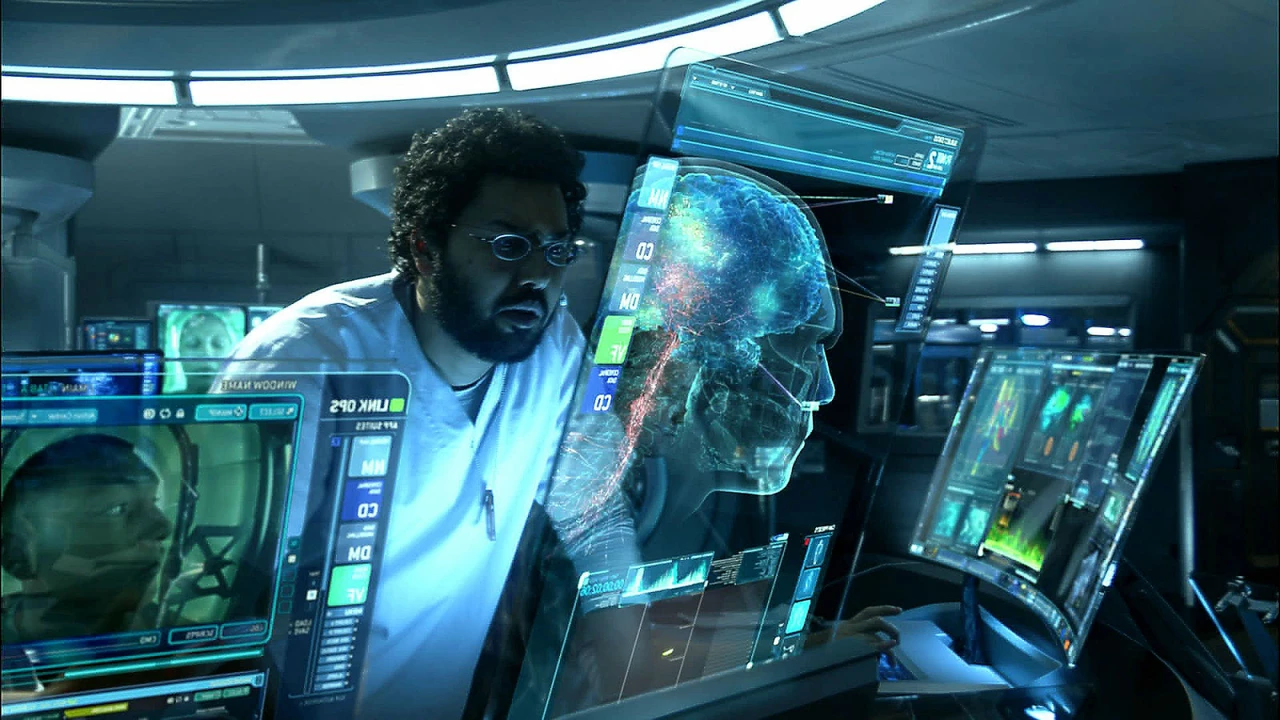Staring into the Future Mirror: Science Fiction Cinema
Apart from being a big fan of my German Shepherd Bruno’s antics or talking to my Turtle Shelby about planet Mars, I am, to put it mildly, a science fiction fanatic. I've always indulged myself in sci-fi literature and cinema, as they give me a sneak peek - sometimes delightful, sometimes dreadful - into our conceivable future. Science fiction cinema is one of the few art forms that have the uncanny ability to provide a mirror image of what lies ahead, and that too in a way that resonates with the audience across multiple timelines. So, let’s dive into the world of what-could-be with science fiction films that best depict our future. Hold on to your space helmets!
Stellar Visions: The Space-Oriented Sci-Fi
Galaxy travel? Alien encounters? Teleportation? The possibility of life on other planets? When asking about the future, space-oriented science fiction movies are the first to pop into our minds. Films like "2001: A Space Odyssey," "Interstellar," and "Blade Runner" have given us chilling yet fascinating versions of our future cosmos.
The classic "2001: A Space Odyssey" paints a bright future with humans colonising the moon and venturing further into space. Inspired by the groundbreaking special effects, I once tried to recreate a tiny "Star Gate" effect at home, causing Bianca to have a near heart attack; it took me weeks to get every shimmering piece of glitter out of our living room carpet.
"Interstellar", with its real-world physics basis, compels us to consider the scenario of earth becoming uninhabitable and humans having to search for new planets to call home. I remember Bruno's quizzical gaze on my teary face, as I watched the heart-aching father-daughter relationship unfold in a dimension-defying universe.
The Tech Prophecy: Science Fiction Foreseeing Technology
Of course, space isn't the only frontier that sci-fi films explore. They also visualise future technological innovations, their implications and potential challenges. Films like "Minority Report," "Her," and "Ex Machina" make us ponder the socio-ethical aspects of the tech-driven future.
"Minority Report" navigates the premise of pre-crime police departments. Could this be something we eventually develop? Sure saves the hassle of waiting to find out if your chocolate stash was pilfered by a cheating spouse (Yes, Bianca, I’m on to you!). Being able to predict crime could radically change our concept of law and order but it's undoubtedly fraught with moral issues!
In contrast, "Her" captures the emotional side of AI, summoning thoughts on the deep impacts of technology on our human relationships. After watching this, I had a lengthy discussion with Shelby – my turtle, about whether she'd prefer an AI friend or me. She chose to crawl into her shell. I presume that means she chooses me!
Apocalyptic Reveries: Doomsday Parade in Sci-Fi
Not every sci-fi fan wants killer robots or advanced cities. Some, like yours truly, are somewhat morbidly fascinated by post-apocalyptic narratives. Films like "The Matrix," "Mad Max: Fury Road," "A Quiet Place," and "Children of Men" provide remarkably vivid depictions of various potential ends of the world.
Truthfully, nothing screams future caution quite like an apocalyptic sci-fi. Take "The Matrix" for example; could we end up enslaved by our technology? In a future where advanced AI sees humans as a threat, it’s possible. I even have recurring dreams of Bruno leading a dog revolution. Quite terrifying, if you ask me!
The monstrosity in "A Quiet Place" makes me appreciate the noisy seagulls I have grown accustomed to in Sydney. Although the post-apocalyptic world filled with blind, noise-sensitive creatures is a horrifying future, but hey, at least movie theaters won't have that guy continuously crunching popcorn anymore.
Utopic and Dystopic Futures: A Tale of Two Spectrums
Sci-Fi also serves us a hefty portion of utopian and dystopian future scenarios. "Star Trek" stands as one of the greatest utopian depictions, presenting a future world where humanity has overcome poverty, disease, and conflict. Not to forget, they also developed the universal translator, which I wish I had each time I couldn't understand Bianca's code language when she's talking with her friends!
On the other end of the spectrum, "Blade Runner" and "1984" remind us that every silver cloud has a dark lining. In "1984," ruling parties use tech to monitor citizens - a paranoia that's surely brewing in our real world. "Blade Runner", on the other hand, forces us to question our definitions of humanity when faced with nearly indistinguishable replicants.
Comic Book Cinematic Universe: Future Meets Fantasy
You can't talk about sci-fi without tipping your hat to the comic-book-based cinema. With movies like "Iron Man," "The Avengers," "Spider-Man: Into the Spider-Verse," and "Black Panther," they offer the most exhilarating types of imagined futures. High-tech suits, super-human abilities, smarter-than-human AI - fancy stuff indeed!
The Marvel Cinematic Universe (MCU) particularly has greatly impacted how audiences envision future technology. Remember how after "Iron Man," we all wanted Jarvis as our digital assistant? Being a mere mortal, I have settled for Alexa for now. Although, I am working on making her understand Bruno’s barks.
All said and done, science fiction is a playground for the wildest imaginations; it’s a genre with no boundaries. While some sci-fi films make us excited about the future, others serve as cautionary tales. As we plunge deeper into the world of AI and space exploration, there's no telling how close our reality might be to some of these cinematic futures. One thing’s for sure though, science fiction cinema paints a broad canvas of endless possibilities, it makes you go "What if?". Now, isn't that a beautiful way of looking at our future?
